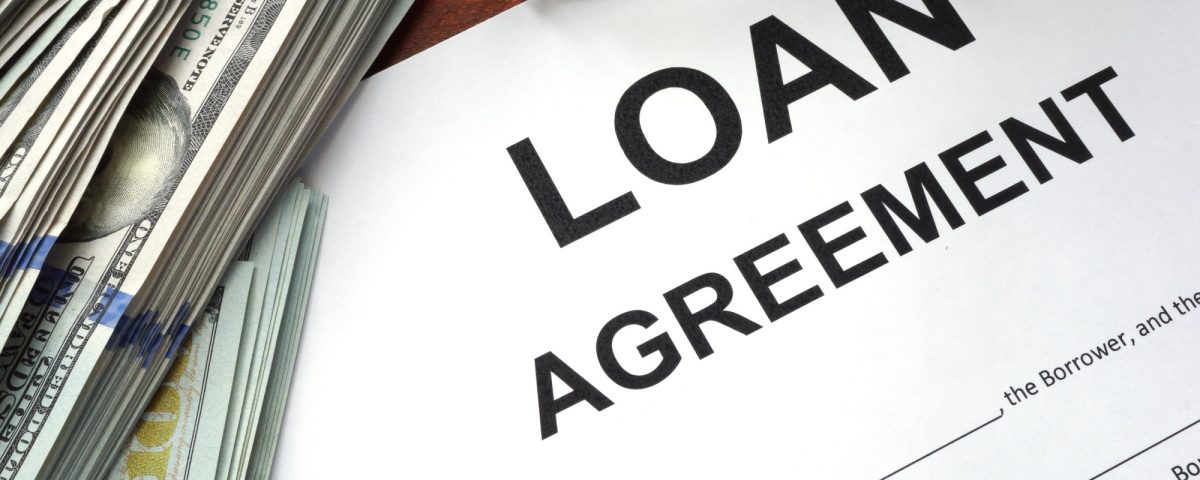Everything You Need to Know About a Loan Agreement

6 Benefits of an Instant Cash Advance
November 1, 2022
How to Avoid a Late Payment Penalty on Your Loan
November 8, 2022Are you aware that the average American has around $155,000 in debt on their shoulders?
When so many people already have a financial burden, it’s crucial to avoid adding more on top of it by signing loan documents that are unfair. Getting a loan should help your financial situation rather than make it worse. However, this depends on the specific terms of the agreement.
Are you wondering how you can get the money you need without getting taken advantage of? Keep reading to learn everything you need to know about a loan agreement.
Make Note of the Interest Rate
Can you believe that a whopping 91% of people consent to legal terms and conditions without even bothering to read them first? While this may not have huge consequences when using a phone app, for instance, things are much different for loan terms.
A single surprise interest rate could have you owing double, triple, or quadruple what you first borrowed. This is one of the aspects of a loan agreement that you should take note of right away. Once you know the interest rate, you should calculate how money extra you’ll need to pay when the time comes.
This alone can give you a much clearer idea of whether the loan contract is fair enough for you or not. Keep in mind that the interest rate on a loan is sometimes limited by the laws and regulations within a given state. Some states are stricter than others, but the intention behind these rules is to ensure that loan agreements are as fair as possible.
Before you move forward with taking out a loan, you should look up the usury laws in your state and find out what the limits are. This can give you a much better idea of whether or not the loan provider is legitimate.
Don’t forget that there are different limits for different situations. For example, credit card interest rates tend to have much more wiggle room than interest on other types of debt.
Be Aware of the Repayment Terms
Aside from the interest rate, you should also pay attention to the repayment terms. Will the lender expect you to pay off the whole loan in a week, a month, or within a much longer span of time?
Some loans are meant to be paid in full on a specific date, while others can allow for month-to-month payments. A payment every month can sometimes reduce the stress involved, but you can’t forget about the interest rate. In some cases, it’s much better to pay off the loan in full as quickly as possible.
In general, personal loans and payday loans are often paid back on a specific date because they tend to be smaller than other loan types. This is something you should negotiate before you sign a single piece of paperwork.
The Consequences of Late Payments
Final loan documents are also supposed to determine the consequences of not being able to pay the loan off. If you miss one or more payments, then you could end up paying late fees. At some point, the loan provider may report you to a debt collection agency.
The domino effect of this could also lead to your credit score nosediving. With some loan agreements, there’s the possibility of putting up collateral. Collateral is comprised of one or more assets that the loan provider can claim if you don’t pay the loan back on time.
For instance, it could be your car, your boat, a precious family heirloom, or even your whole home. Of course, this is something you’ll have to agree to ahead of time. It’s not as if the loan providers will show up and start taking things that catch their eyes.
Some loan agreements can give you the option of extending the loan. This is often treated as taking out another loan so you should expect to receive more fees in this scenario.
Identification of Involved Parties
While this may not seem as important as interest rates and late payments, party identification is still the main element of every contract. Without it, nothing else will apply, and the agreement could be deemed null and void in a court of law.
Not only will it identify you as the loan recipient, but it’ll also identify the loan provider by listing their official business name that’s on file with the government. It’s important to ensure your full name is spelled correctly throughout the agreement.
If you spot any misspellings, then you should ask the loan provider to update it with the correct name and send it to you again. This may seem like a hassle at first, but it can go a long way toward ensuring the entire loan process goes as smoothly as possible.
The date of signature is also an important element because it will correspond with the repayment plan. For instance, if you agree to pay the loan back in a month, it’s important to have evidence that can determine the exact date. This will protect both you and your lender in the event of a miscommunication.
Are You Ready to Sign a Loan Agreement?
Now that you’ve learned everything you need to know about a loan agreement, you can sign on the dotted line with much more confidence. After all, you should never get yourself into any legal agreement without making an informed decision.
Fast Loan Direct makes it easy to figure out what you’re signing up for. That way, you can get the money you need without any surprises down the road. Our clients appreciate the convenience and attentive customer service.
Feel free to apply here or reach out with questions. We’re dedicated to being helpful and transparent.

